Apparently, New York state does not like something about Pepsi. A lawsuit was filed this week in New York state against one of the world’s largest beverage corporations, according to Reuters.
PepsiCo, which is headquartered in Harrison, NY, also owns a number of other well known snack and beverage brands such as Cheetos, Doritos, Gatorade, Mountain Dew, and Quaker.

null
New York State Sues Pepsi
Reuters is reporting that New York state sued PepsiCo, accusing the company of “polluting the environment and endangering public health through its single-use plastic bottles, caps and wrappers.”
See Also: What is the Most Common Last Name in New York State?
The New York Post says that the suit, which was filed in Erie County, is one of the first by a state to target a major plastics producer.null
The lawsuit, filed by the Office of New York Attorney General Letitia James, claims the bottles and bags from Pepsi products are clogging the Buffalo River, “threatening both human health and wildlife’. The suit accuses the soda giant of being the “single largest identifiable contributor” to the current situation.
CBS News says that the lawsuit calls for PepsiCo and its subsidiaries, to clean up the mess, which they claim has contaminated the drinking water supply in the City of Buffalo.
LOOK: 50 FAMOUS BRANDS THAT NO LONGER EXIST
Stacker compiled a list of more than four dozen famous consumer brands that no longer exist, consulting sites such as TheStreet, Good Housekeeping, and Eat This, Not That!, along with numerous throwback sites dedicated to consumer brands.
Gallery Credit: Liz Barrett Foster
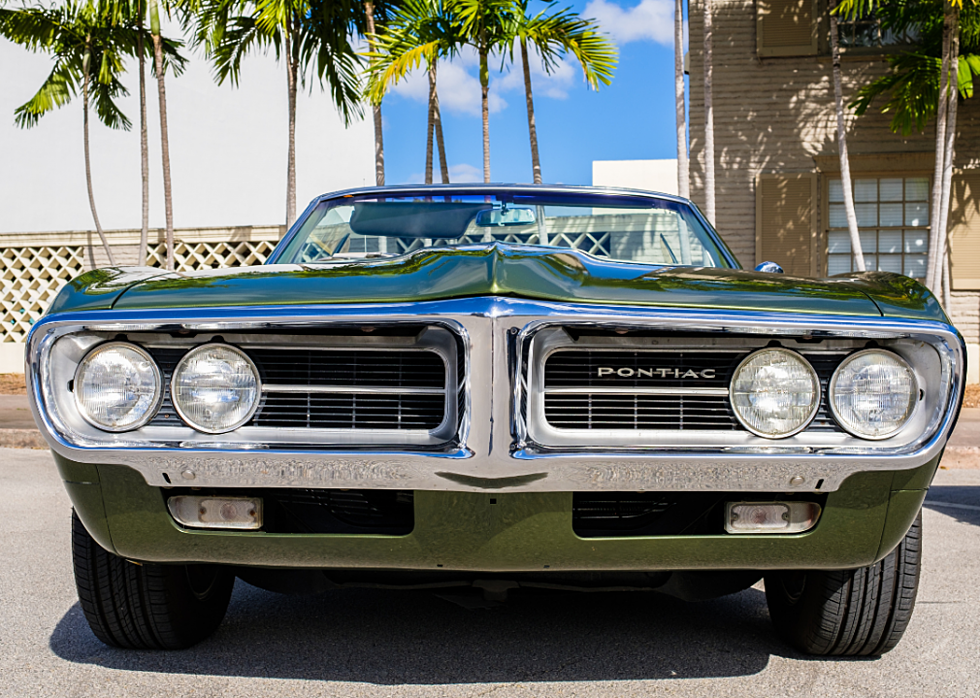
Fotoluminate LLC // Shutterstock
Pontiac
General Motors introduced Pontiac in 1926 as a sister brand to Chevrolet. The line produced performance vehicles such as the Fiero, Sunfire, and Solstice. Despite numerous attempts to save Pontiac, in 2009, GM discontinued the brand due to a lack of profits.
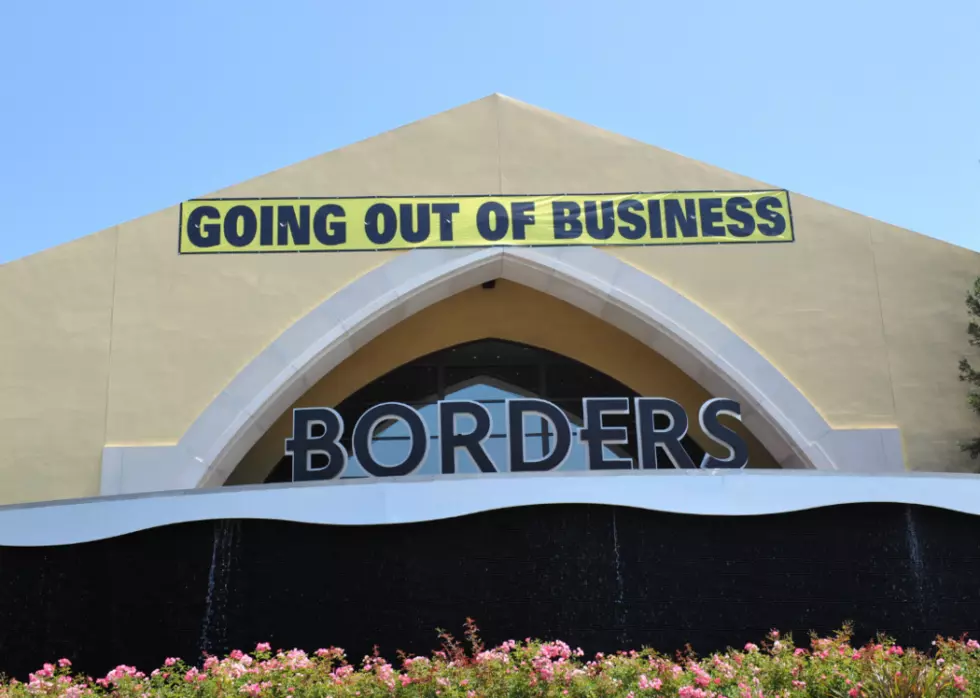
Jose Antonio Perez // Shutterstock
Borders
Founded in 1971, bookstore chain Borders was forced to file bankruptcy and close all remaining stores by the end of 2011. The company, like many, did not pivot to online sales as fast as its competitors; between 2001 and 2008, it had even linked to Amazon instead of establishing its own online business.
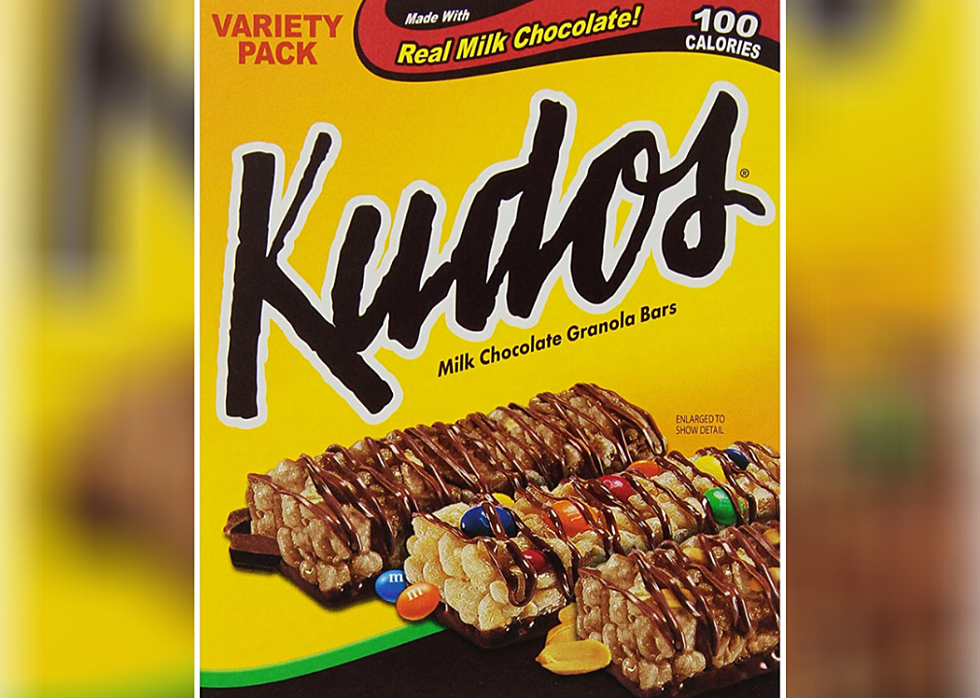
Mars, Inc. / Kudos
Kudos
There was no formal statement from Mars, Inc. regarding why the deliciously popular breakfast candy bar Kudos disappeared from retail shelves. However, some speculate that healthier snack bars moved inand left little room for a candy bar disguising itself as a nutritious snack.

Fujoshi Bijou // Flickr
Orbitz
When Orbitz debuted in 1997, it was promoted as a “texturally enhanced alternative beverage.” Apparently, the world wasn’t ready for Orbitz’ gelatinous blobs floating around inside what some called a liquid reminiscent of cough syrup. The beverage was discontinued within a year.
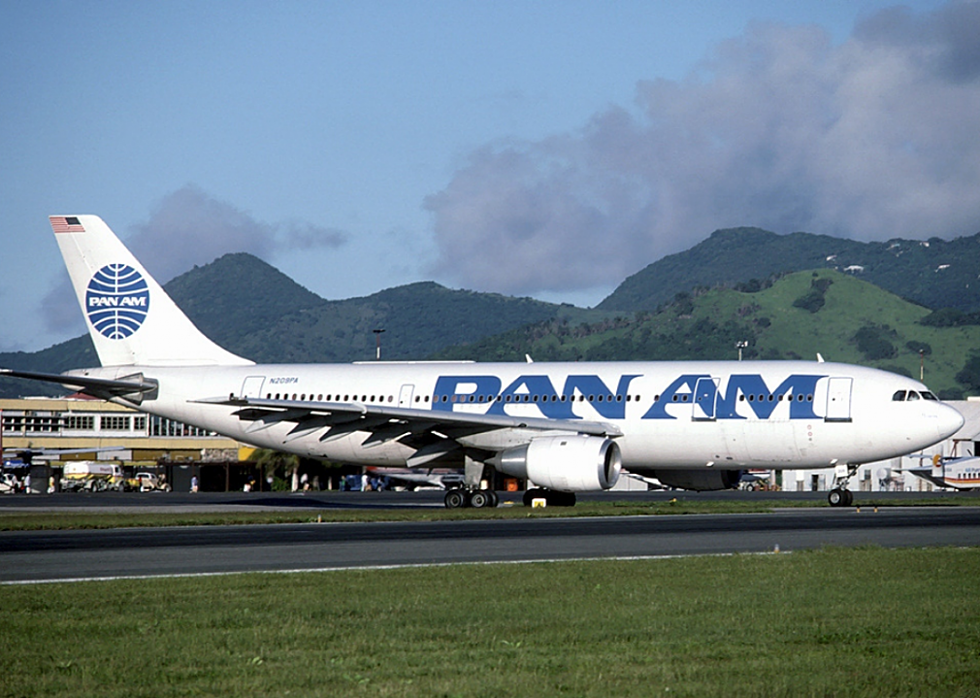
Eduard Marmet // Wikimedia Commons
Pan Am
Once the largest international airline in the U.S., Pan Am shuttered after 60 years commanding the skies. Three major turning points lead to Pan Am’s demise: the company invested half a billion dollars on 747s right before an oil embargo raised the price of oil 400%; it purchased National Airlines in order to fly domestically, resulting in a loss of $18.9 million; and in December 1989, it was the target of a terrorist attack that killed over 260 people. Two years later, in 1991, the company filed for bankruptcy.

Bkwparadox // Wikimedia Commons
Zune
Zune, Microsoft’s version of the iPod, seemed destined to fail before it even took off, according to company sources. It was a matter of entering the market too late—consumers weren’t all that interested in portable music anymore, and Zune failed to capture the market that was left.
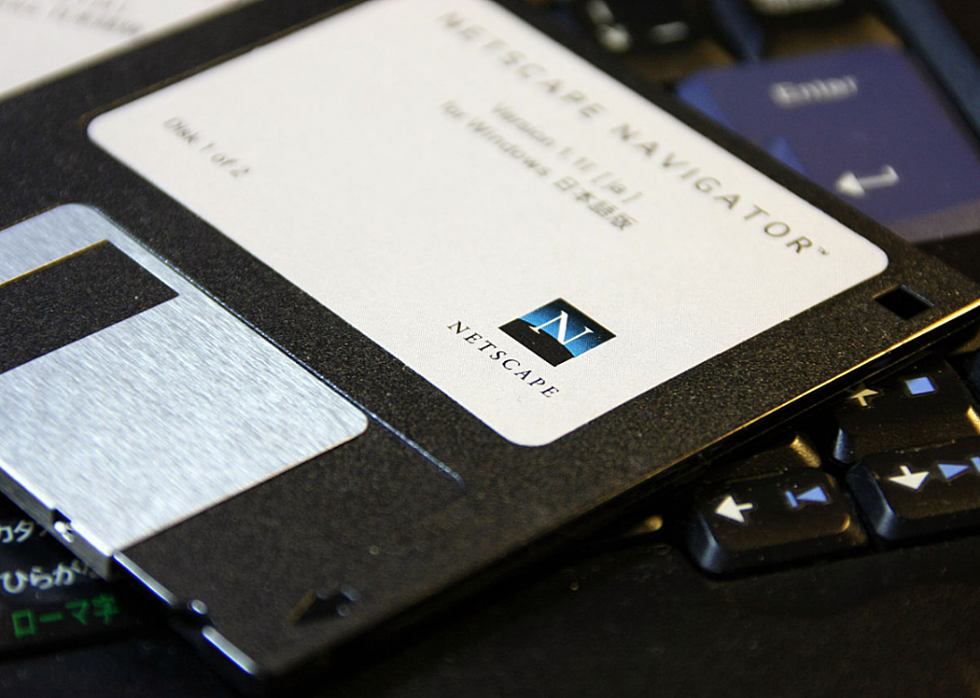
Toshihiro Oimatsu // Wikimedia Commons
Netscape Navigator
Founded in 1993, Netscape Navigator was the dominant web browser of the 1990s. At one point, the company had over 5,000 employees maintaining its application. However, Netscape was no match for Microsoft, which released Internet Explorer shortly after Netscape. By 1998, the company was acquired by AOL, and the browser was shut down in 2008.
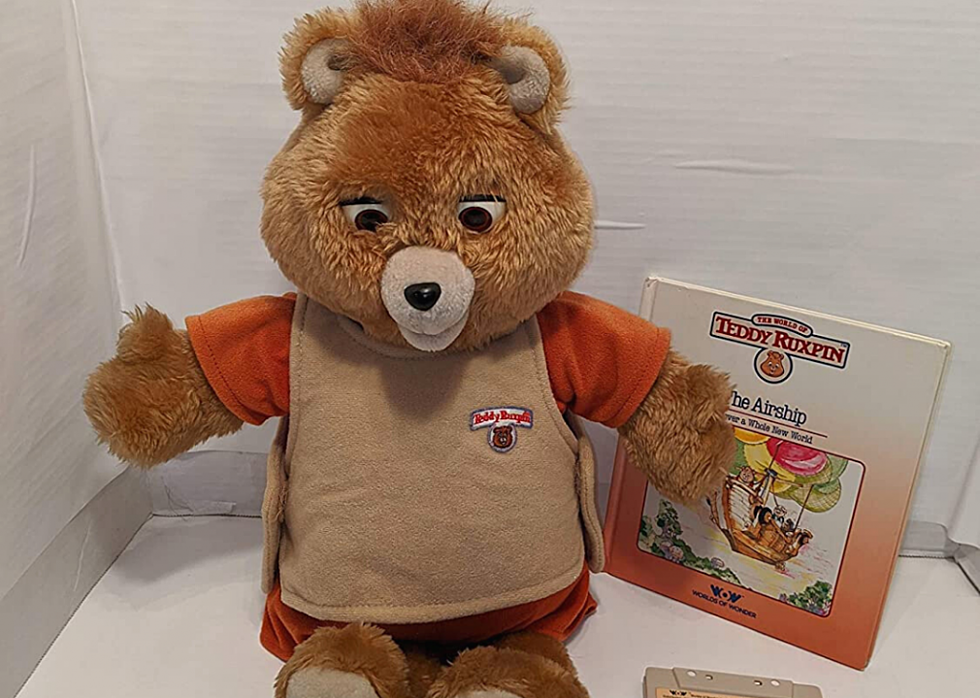
Teddy Ruxpin / Worlds of Wonder
Worlds of Wonder
Teddy Ruxpin was the shining star of Worlds of Wonder (WoW, for short). The company, composed mostly of former Atari employees, also introduced the Nintendo Entertainment System and Lazer Tag, the latter of which may have partly led to the company’s failure. Eight months after a 19-year old pointed a Lazer Tag gun at a police officer and was fatally shot, the company filed for bankruptcy.
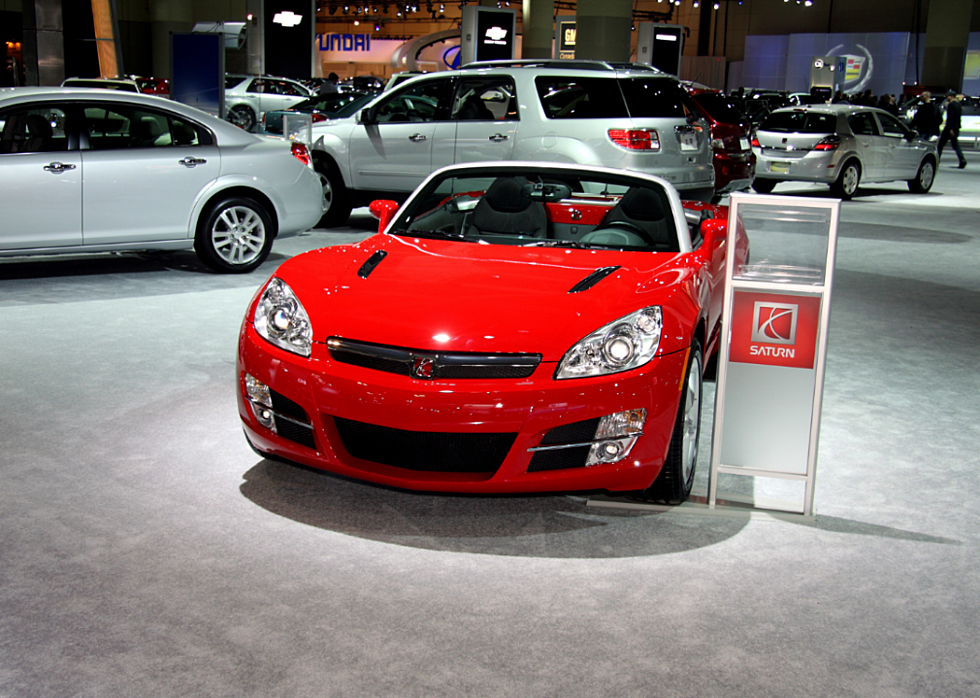
kylesmith // Shutterstock
Saturn
After a failed deal with Penske Automotive Group, General Motors made the decision to cease operations at Saturn. The vehicle line, which began in 1985 and included mostly small to mid-size vehicles, was reportedly never profitable.

Geshas // Shutterstock
Fruit Bars
In an odd marketing campaign, Fruit Corners Fruit Bars touted the slogan, “Made from real fruit so your taste buds shout, look so ugly they’re gonna knock you out!” Apparently, the fruit bars were, indeed, too ugly. Once Fruit Roll-Ups were released, Fruit Bars disappeared.

oliveromg // Shutterstock
Squeezit
A staple inside 1980s lunch boxes, Squeezits implored tiny hands to squeeze the juice out of character-emblazoned plastic bottles filled with flavors like Grumpy Grape and Chucklin’ Cherry. The juices remained popular for more than a decade but slowly faded out of sight, despite the introduction of new flavors and a brand partnership with LifeSavers.
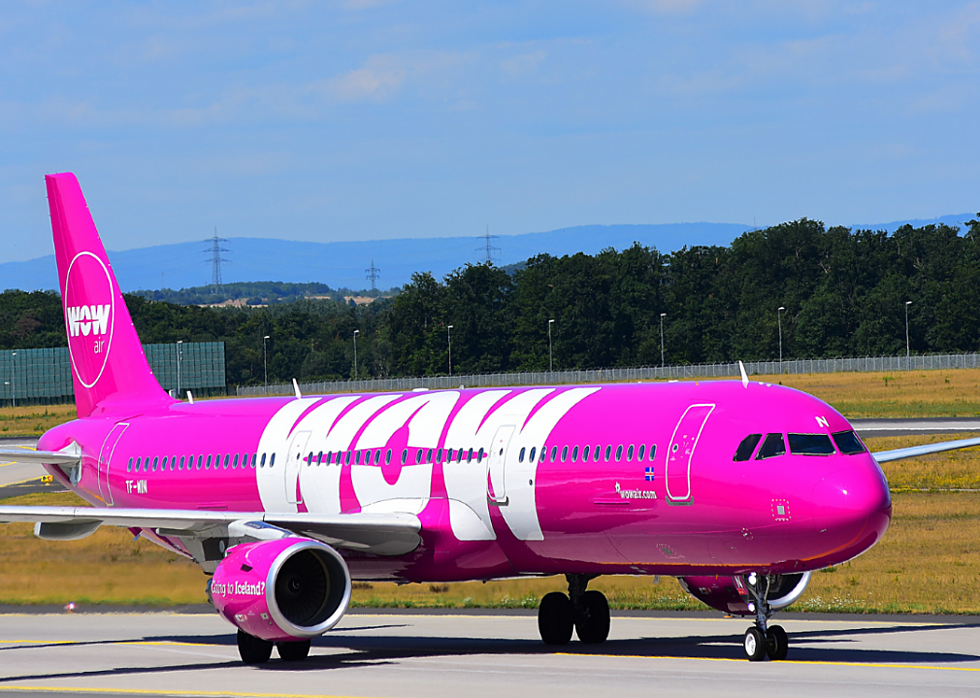
Vytautas Kielaitis // Shutterstock
WOW Air
The ultra-low-cost airline WOW Air was based in Iceland, offering flights between North American and Europe, with a free stopover in Iceland. A seasonal and unprofitable business model may have caused the airline to start faltering. Its CEO said the nail in the coffin came with the purchase of widebody A330s that they couldn’t afford once oil prices rose. WOW closed in 2019 after eight years in business.
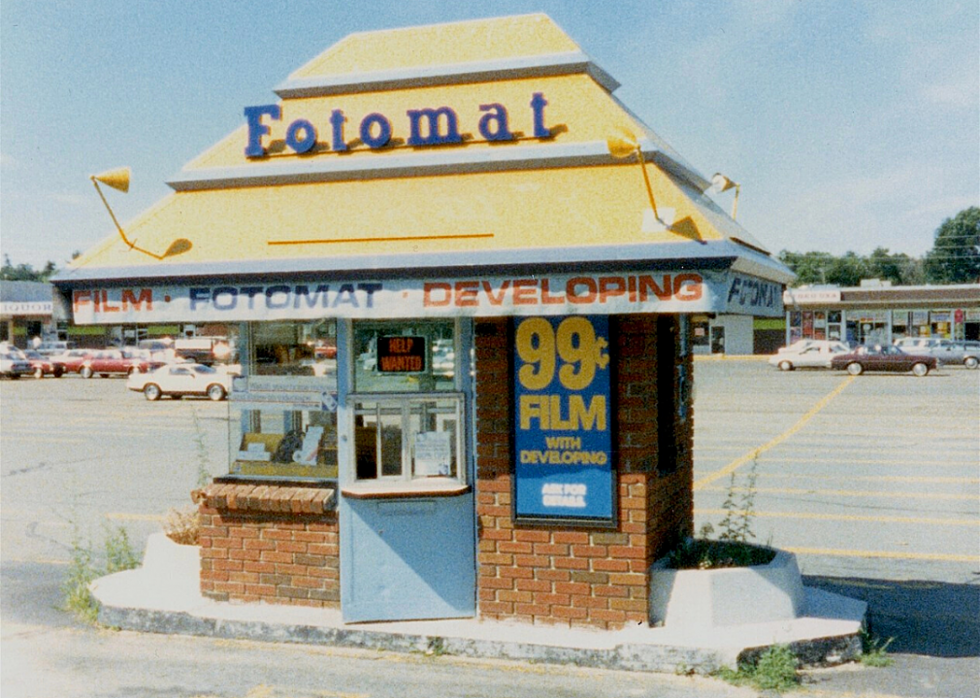
Unknown // Wikimedia Commons
Fotomat
Gold-roofed Fotomat kiosks were everywhere in the 1970s and ’80s. When developing camera film needed a quick and convenient solution, Fotomat was the answer. The company offered drive-through next-day service, but when one-hour photo development became available in the 1990s, Fotomat fell out of favor.
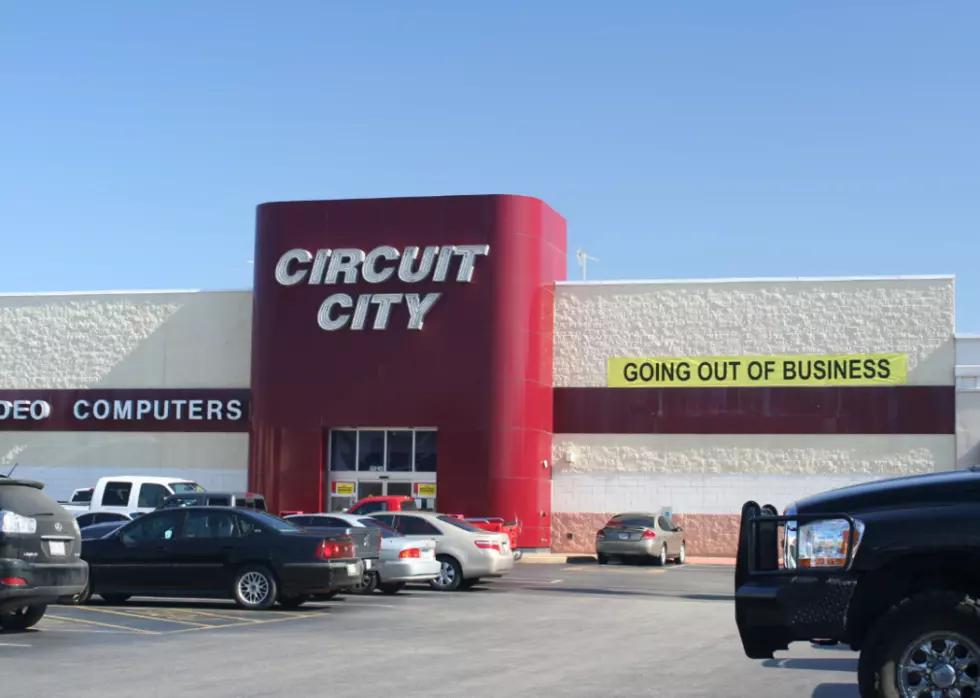
LM Photos // Shutterstock
Circuit City
Circuit City had more than 550 stores at one point. Customers could find anything electronic, ranging from washers and dryers to TVs and car stereos. But in 2008 the brand began closing its stores after 59 years, due to a variety of factors.
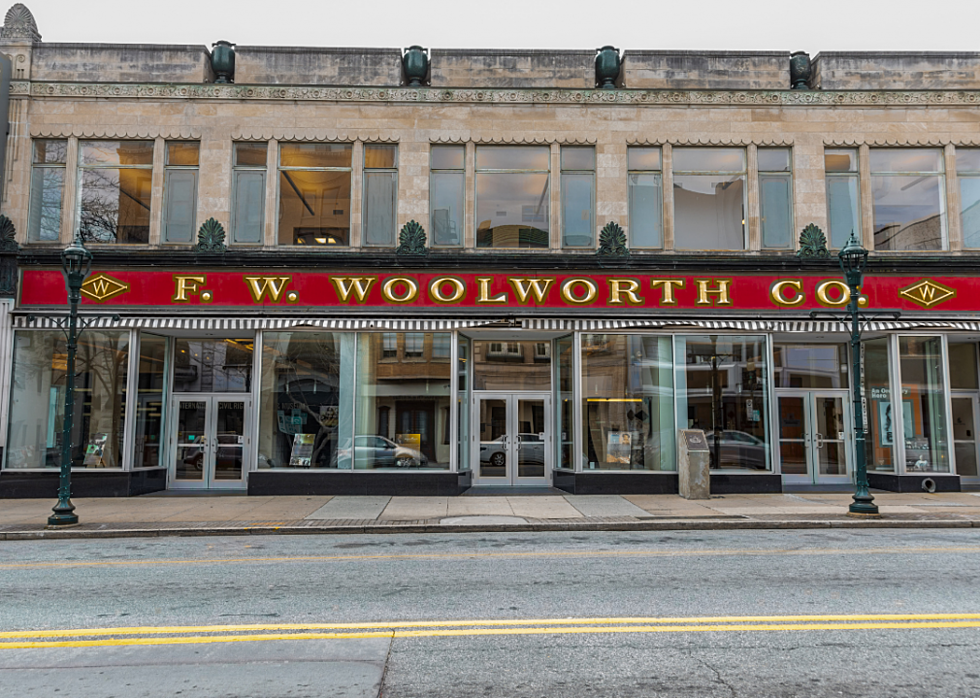
Nolichuckyjake // Shutterstock
F.W. Woolworth
In 1879, F.W. Woolworth was the first store to allow customers to pick out their own items without the assistance of a sales clerk, and every item was just 5 and 10 cents. By 1912, there were 596 stores, but the 1960s were tough, as store boycotts and the opening of Walmart, Kmart, and Target all ate into profits. Although the company expanded to the UK, Woolworth’s eventually went under in the ’90s.
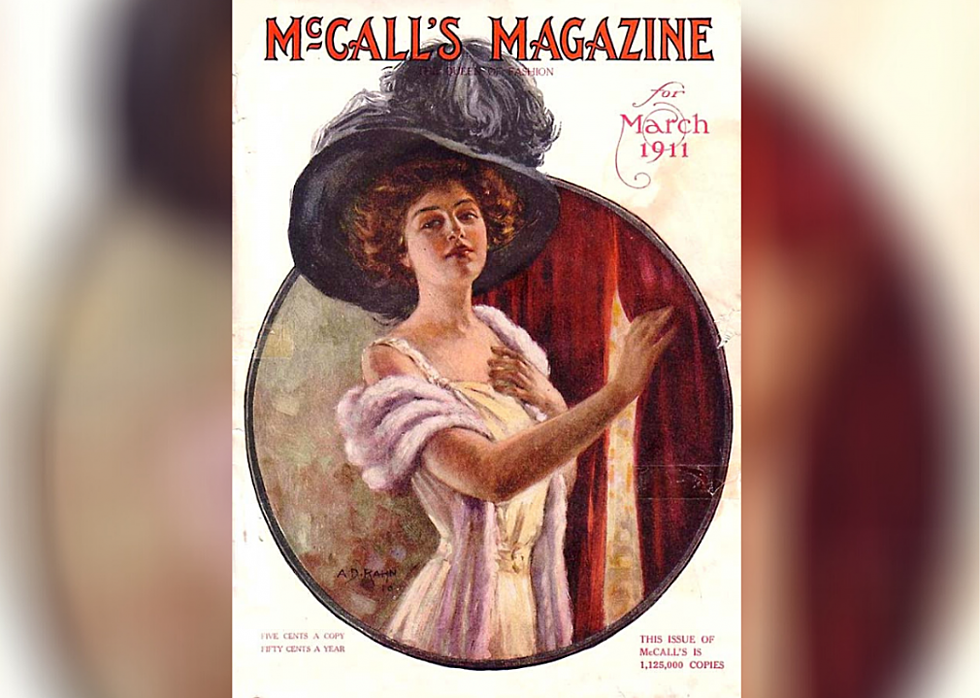
Unknown // Wikimedia Commons
McCall’s Magazine
Stiff competition from a growing list of women’s magazines ultimately led to the shuttering of the highly regarded women’s publication McCall’s in the 1990s. The magazine was started in 1874 by a Scottish tailor as a way to share his dressmaking patterns. His wife took over the magazine after his death in 1884, and the magazine slowly transitioned from dress patterns toward more general content.

IFCAR // Wikimedia Commons
Mercury
In production from 1938 to 2011, the Mercury car line was designed to meet demand from Ford’s customers for an upper-middle car market, somewhere between cheap and expensive. The demographic proved to be limited, and the cars were eventually phased out in 2011.
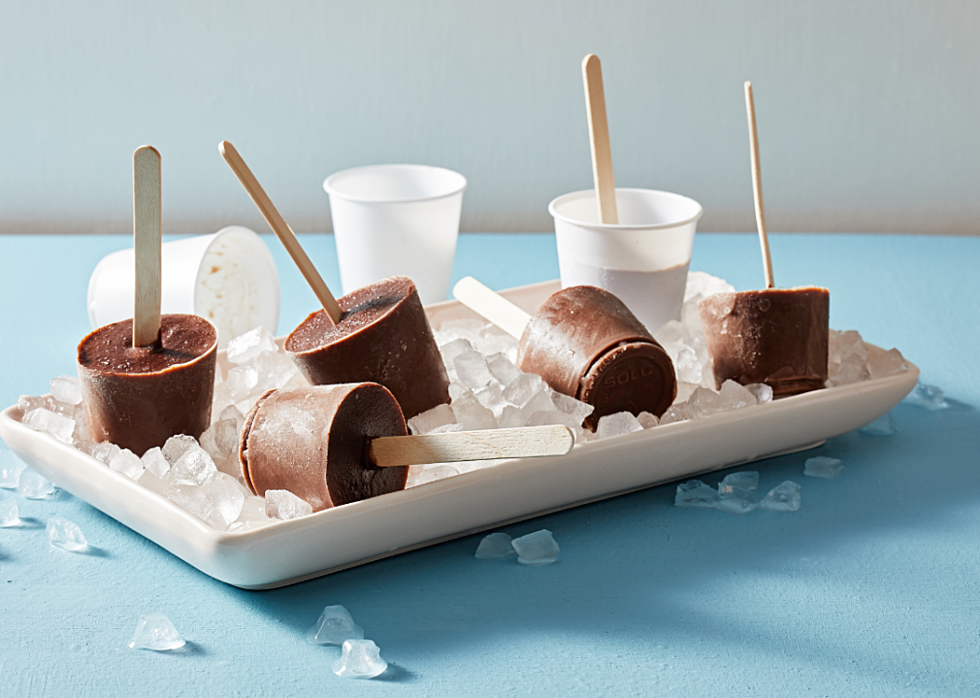
The Washington Post // Getty Images
Pudding Pops
Despite being wildly successful in the 1980s, General Mills’ Jell-O Pudding Pops did not turn a profit. General Mills wasn’t savvy in the frozen foods space. They tried licensing the product to Popsicle in 2004, but eventually, Jell-O Pudding Pops just evaporated.

New Africa // Shutterstock
Pets.com
Launched in 1998 and memorable thanks to the sock puppet starring in its commercials, Pets.com closed its website just two years after it launched. Reasons range from the company not diversifying enough to its going public too early.
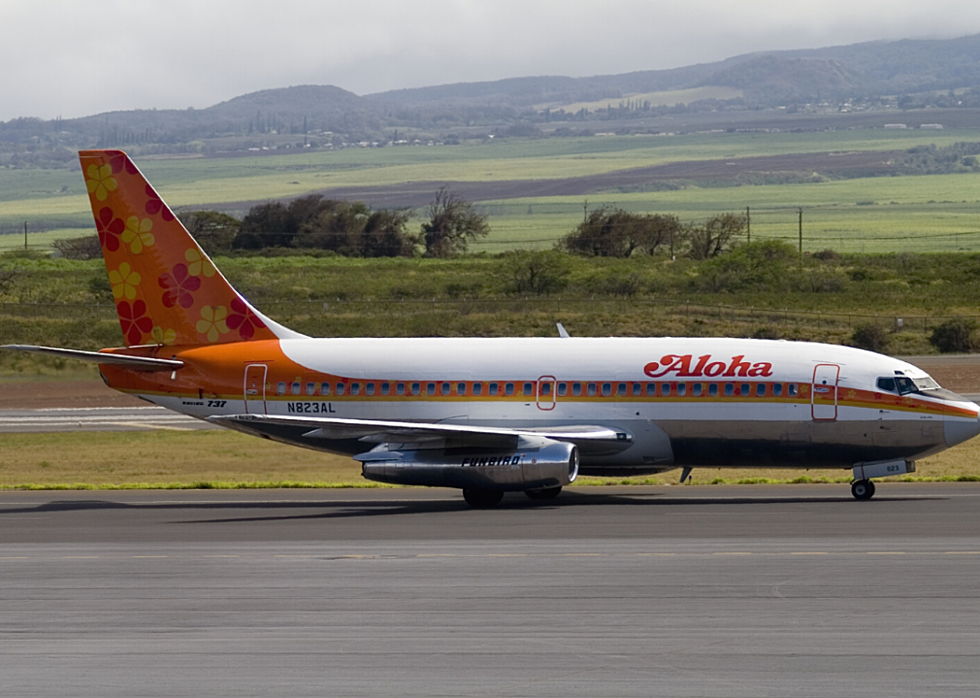
Jenzinho // Shutterstock
Aloha Airlines
Aloha Airlines served Hawaii for more than six decades, marketing itself as “the people’s airline.” Aloha and Hawaiian Airlines made three attempts at a merger, all of them failing. In 2006, go! Airlines (sic) entered the picture, offering inter-island flights for as low as $1, and it became too hard to compete. Aloha ended operations in 2008.

fizkes // Shutterstock
Merry-Go-Round
Competition, a challenging economy, and a teen customer base whose tastes had changed were just a few reasons given for the closure of more than 500 mall-based Merry-Go-Round apparel stores in the mid-1990s. A last-ditch attempt at deemphasizing fashion was made to save the company, but to no avail.
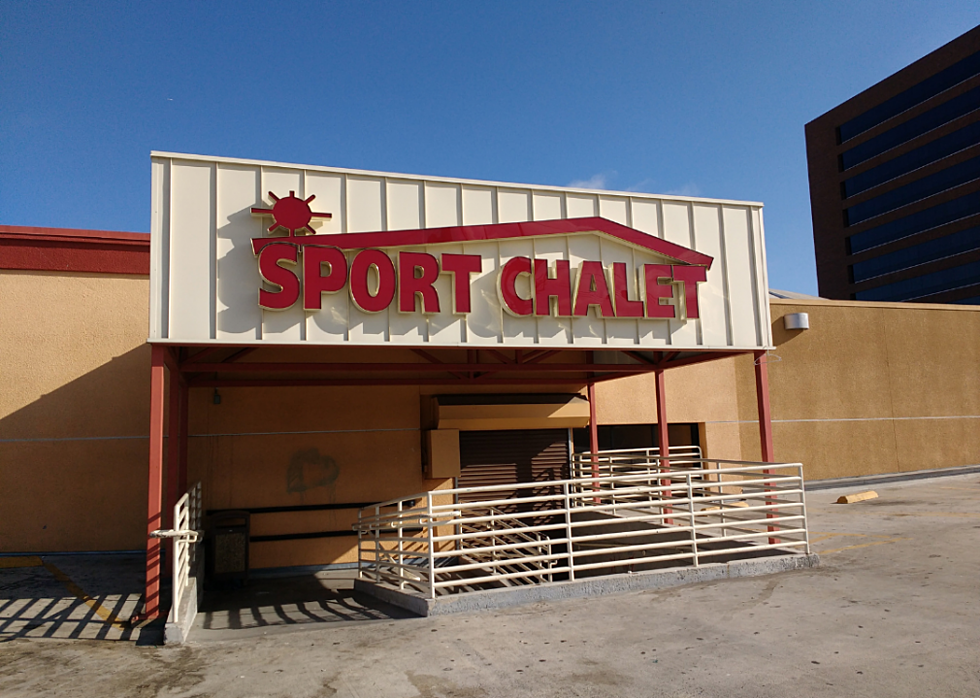
Alex Millauer // Shutterstock
Sport Chalet
Founded in 1959, the West Coast sporting store Sport Chalet closed in April 2016, just one month after rival Sports Authority filed bankruptcy. The company was already in debt when it was purchased by investors in 2014 and was never able to climb out.
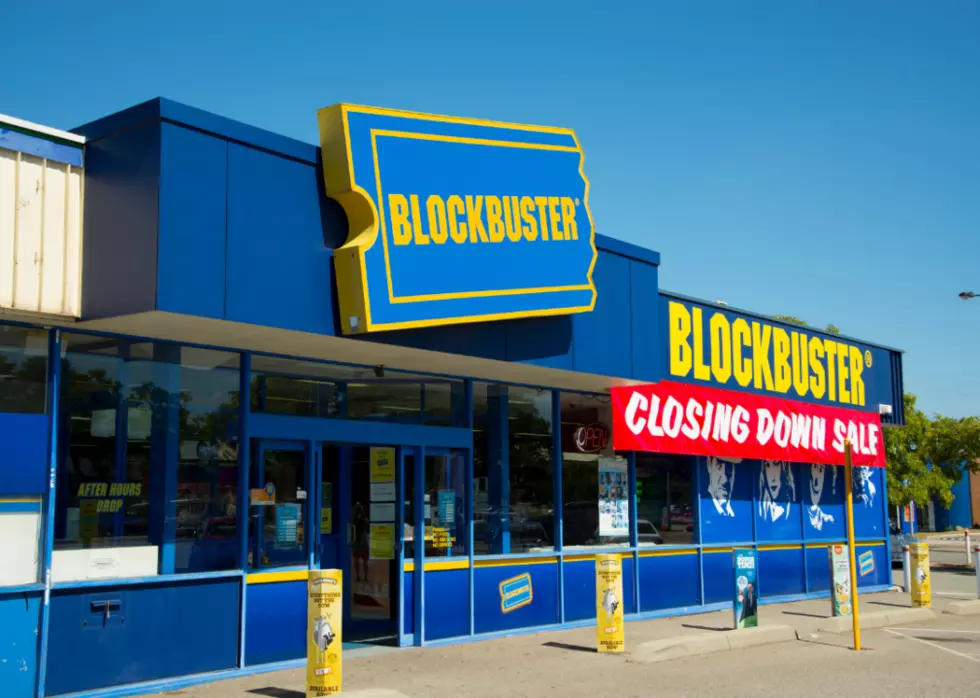
Adwo // Shutterstock
Blockbuster
At its peak, Blockbuster had nearly 10,000 stores worldwide with revenue of almost $6 billion per year. When the company was approached in the 1990s by a small startup called Netflix offering DVDs by mail, Blockbuster laughed at the offer to partner for $50 million. As Netflix soared, Blockbuster would file for bankruptcy in 2010 and close its remaining video rental stores in 2013.
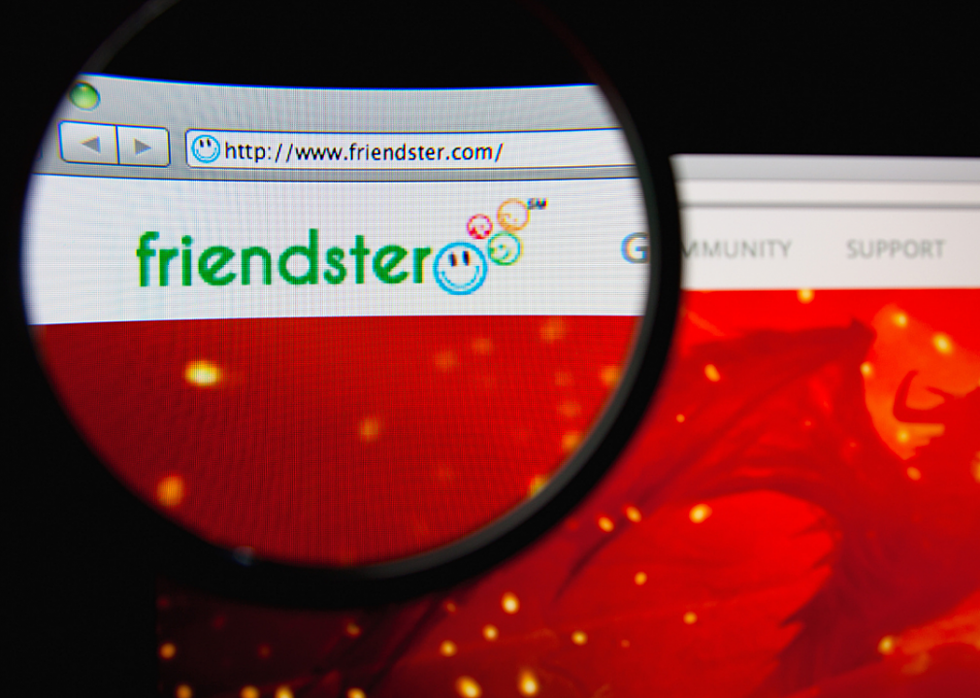
Gil C // Shutterstock
Friendster
One of the first social networking websites, Friendster, launched in California in 2002. It had tens of millions of subscribers at its peak, with Google offering to purchase the website at one point. As member numbers declined, Friendster was purchased by an internet company in Asia in 2009. A couple of years later, it was turned into a gaming site, and by 2015, it was gone.
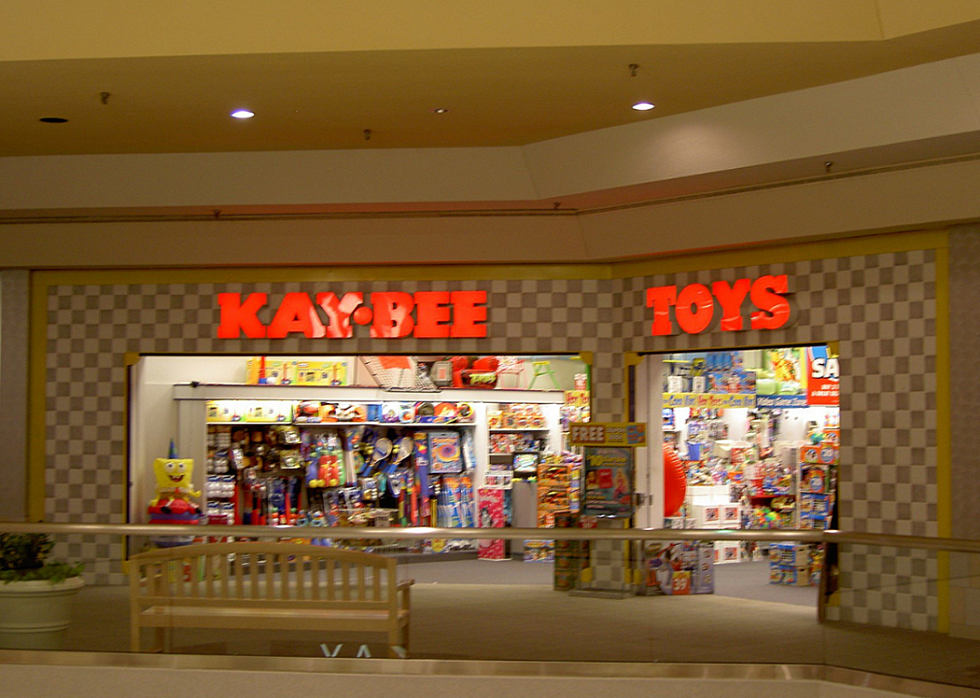
AdamL212 // Flickr
KB Toys
Originally named Kay Bee Toys when it began in 1922, the name was shortened in the 1940s. By the early ’80s, there were just over 200 locations of KB Toys, and in 2003, stores numbered 1,300. While the company changed hands many times over the years, the KB brand held up until competition from Toys ‘R’ Us and growing toy sections in big-box retailers squeezed them out. The last store closed in February 2009, and while rumors circulated of pop-up KB Toys locations in 2018, there was insufficient funding to make it happen.

Vadym Sh // Shutterstock
Contempo Casuals
Contempo Casuals began with one retail store in Granada Hills, California, in the 1960s, offering hip and trendy fashions for teens. The company grew so fast that Neiman Marcus bought the brand in 1978. Wet Seal purchased Contempo Casuals’ 237 stores from Neiman Marcus in 1995, the same year that the brand appeared in the pop culture classic “Clueless,” and six years later, their mall stores were converted to Wet Seal or Arden B locations.

Dominick Corrado // Shutterstock
Oldsmobile
Launched in 1897, Oldsmobile was the oldest surviving car brand in the U.S. It was considered General Motors’ “innovation brand,” introducing new features to consumers such as automatic transmission and air bags. The Oldsmobile Cutlass was once the most popular car in the U.S., and in the mid-1980s, Olds was selling more than 1 million cars per year. Sales dropped when innovation fell by the wayside, and in 2000, GM announced that the 2004 Oldsmobile models would be the company’s last.
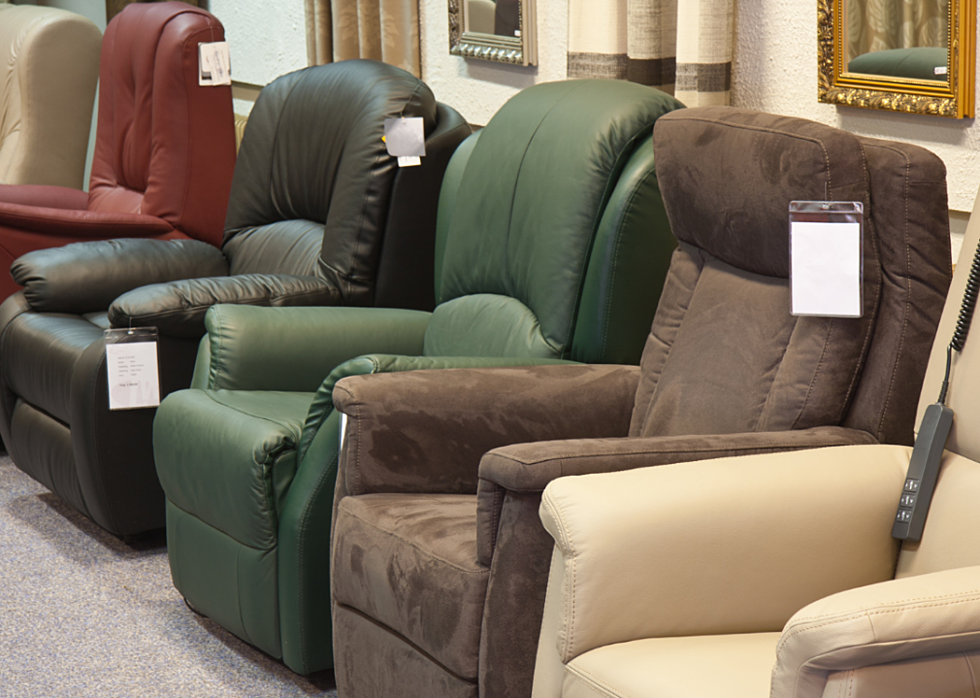
T.W. van Urk // Shutterstock
Wickes Furniture
Launched in Minnesota in 1971, Wickes Furniture was a one-stop store for outfitting a home. The company grew to 43 stores, but when the housing crisis hit in 2008, Wickes was hit, too. In February 2008, liquidators bought and sold more than $75 million of Wickes inventory.
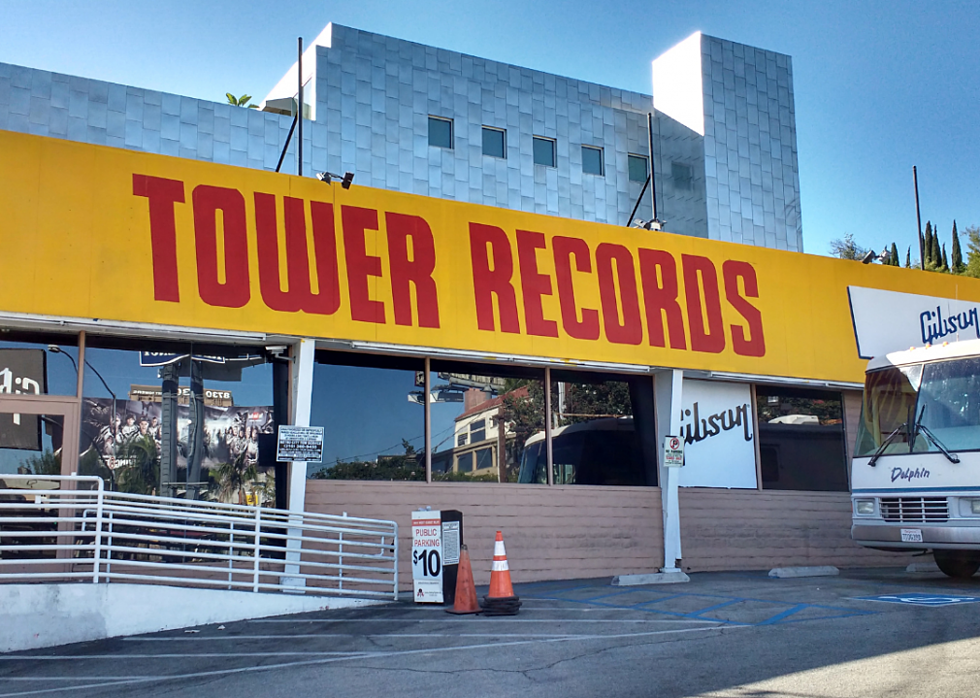
Alex Millauer // Shutterstock
Tower Records
Like most stores selling tangible music goods such as records, turntables, CDs, CD players, and the like, Tower Records vanished in 2006 due to the fact that the market was no longer demanding what the store was selling. However, it surprisingly reemerged this month as an online-only store.

PixieMe // Shutterstock
Bugle Boy
Popular throughout the 1980s thanks to its fashionable parachute pants, Bugle Boy caught consumer attention with its commercials, which asked, “Excuse me, are those Bugle Boy jeans you’re wearing?” By the late ’90s, the company found it hard to keep up with changing trends, throwing money at several different demographics and opening its own stores. Bugle Boy filed for bankruptcy in 2001.
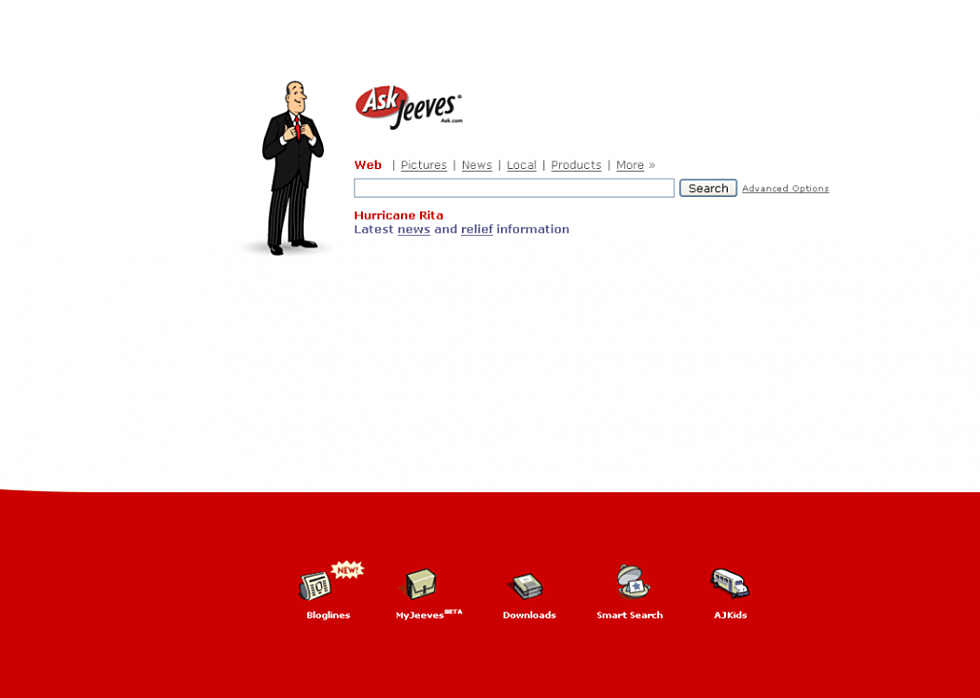
Christian Ramiro González // Flickr
Ask Jeeves
Ask Jeeves launched in 1997 as a search engine complete with a concierge who helped visitors find what they sought—if they asked in the form of a question. By 1999, Ask Jeeves was handling 1 million searches every day, and when the company went public, shares skyrocketed from $14 a share to $190.50. However, when the dot-com bubble burst in 2001, the company lost $435 million, shares dropped to 86 cents in 2002, and the site was purchased and turned into Ask.com in 2005.
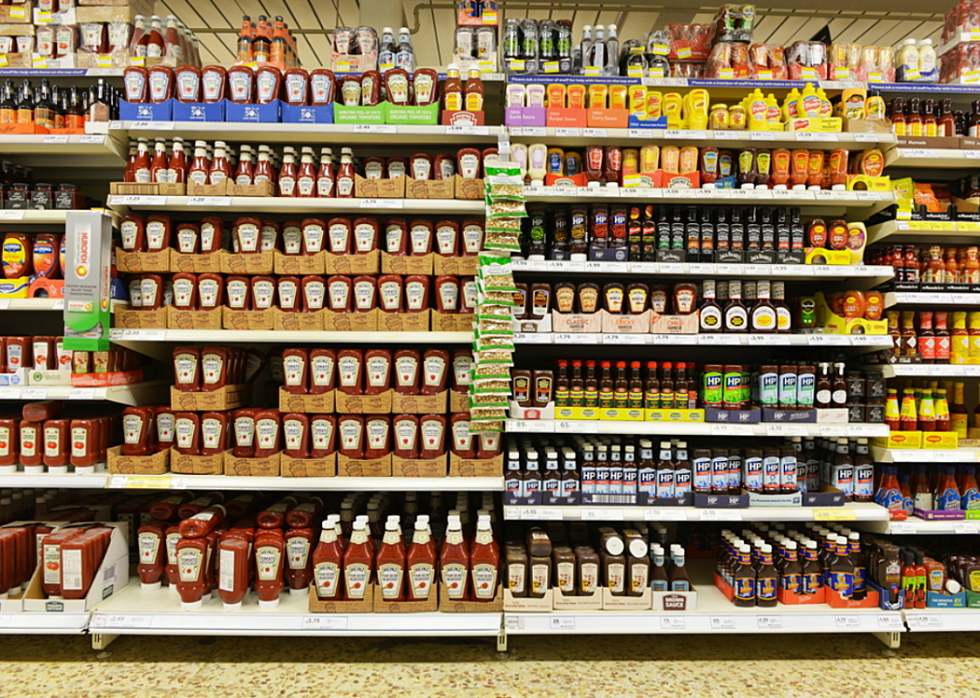
1000 Words // Shutterstock
Heinz EZ Squirt
Why use red ketchup when you can have green, blue, purple, or pink? That was the idea behind Heinz EZ Squirt when it was introduced in 2000. The company was initially surprised at the colorful ketchups’ success, but by 2006, kids lost interest and the line was discontinued.

Like_the_Grand_Canyon // Flickr
Tab
Coca-Cola introduced Tab in 1963 as its first one-calorie diet soda. After decades of keeping it around mostly for nostalgic reasons, Coca-Cola is phasing Tab out by the end of 2020, along with several other slow-moving products.

sylv1rob1 // Shutterstock
Plymouth
Originally sold exclusively through Chrysler dealerships, Plymouth was Chrysler’s first attempt at low-priced vehicles in 1928. By 1931, Plymouth took third place among all cars and would remain a top-selling brand for decades, but it began losing its identity in the late ’70s when model features and pricing overlapped with other car brands. Only four models were sold under the Plymouth name by the end of the 1990s, and production of Plymouth ended in 2001.
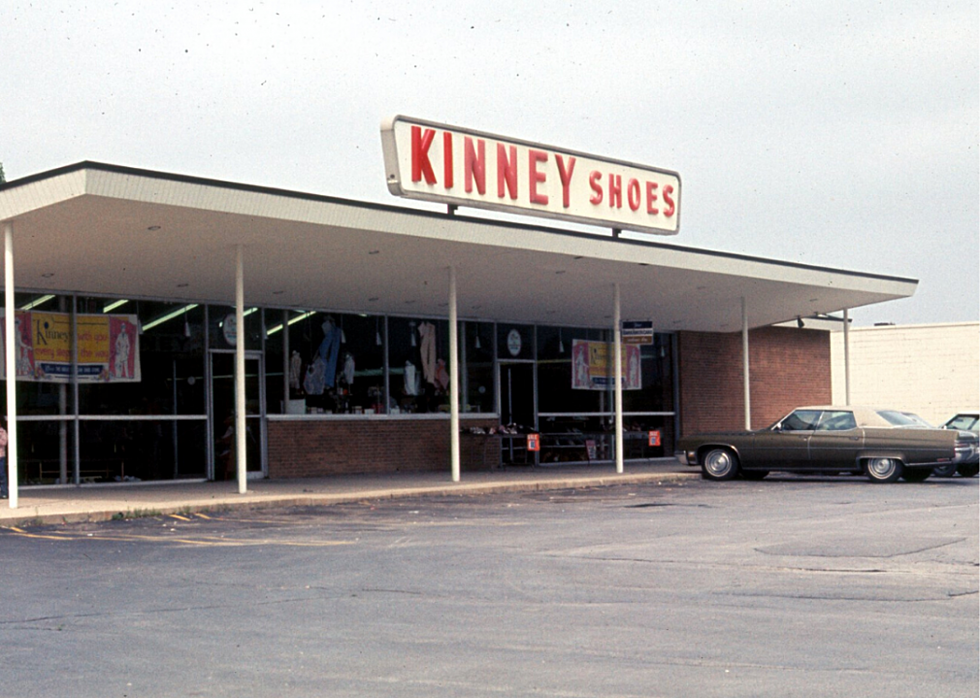
Joe+Jeanette Archie // Flickr
Kinney Shoes
In 1994, Kinney Shoes celebrated 100 years in business. The company had become one of the largest shoe retailers, merging with Brown Shoe, selling assets to F.W. Woolworth Co., and adding Foot Locker, Stylco, and Susie Casuals. In 1998, after 104 years, the Venator Group announced that it was exiting the specialty footwear business and would close all stores.
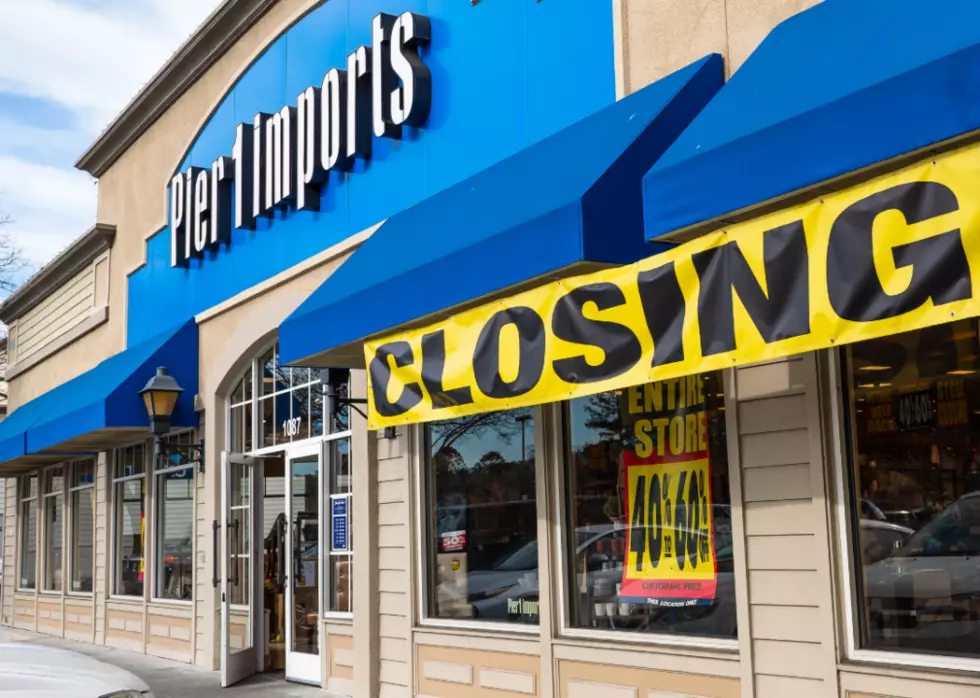
Sundry Photography // Shutterstock
Pier 1
Pier 1 began in 1962 in San Mateo, California. It closed half its stores at the start of 2020. Unable to find a buyer after filing for bankruptcy, the company would see the rest of its 900+ outlets closed by midyear. Since then, the brand has been purchased by Retail Ecommerce Ventures, which took the distressed company online.

M.S.LIN // Shutterstock
4Kids Entertainment
The parent company of Leisure Concepts, Inc., 4Kids Entertainment was the sole licensing agent for Pokémon and many other popular toys and cartoons such as Yu-Gi-Oh!, Teenage Mutant Ninja Turtles, Nintendo characters, Cabbage Patch Kids, and more. In January 2011, the CEO resigned, and in March, the company was sued for alleged illegal agreements with other companies. In December 2012, the company exited bankruptcy protection and reincorporated under a new name, ultimately filing Chapter 7 bankruptcy in 2016.

fotopanorama360 // Shutterstock
Minolta
The age of Minolta cameras lasted from 1926 to 2006. Some say it was Minolta’s focus on the consumer market that ultimately led to its demise. Low-cost, affordable consumer cameras were no match for the high-end professional models Minolta used to carry, and the brand eventually felt the effects where it counted—the bottom line.
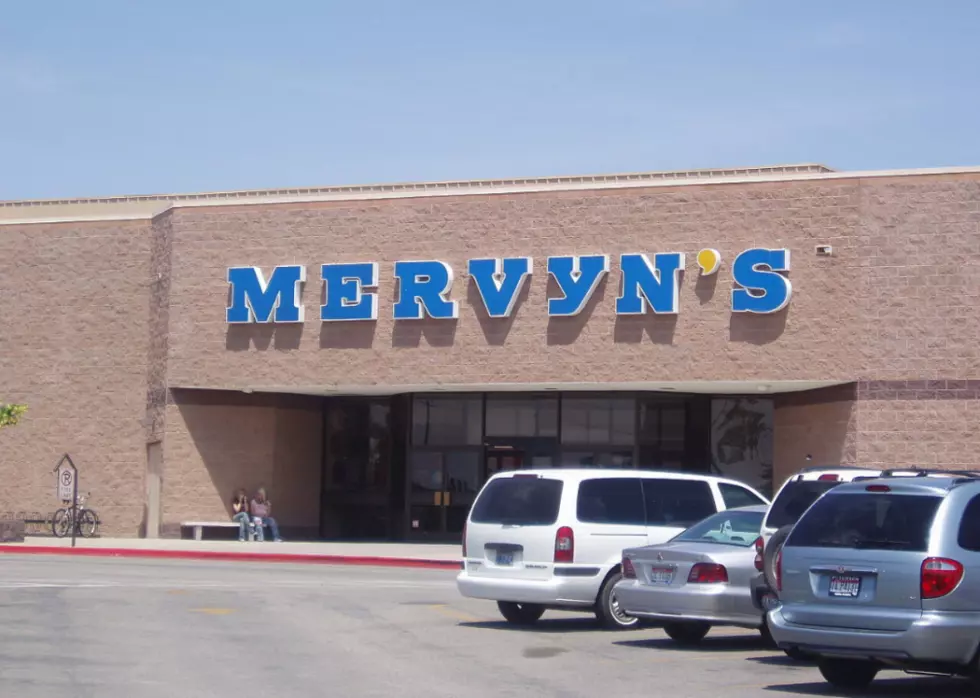
Caldorwards4 // Wikimedia Commons
Mervyn’s
Founded in 1949, midrange department store Mervyn’s had 266 stores in 14 states by 2004. It was then that the chain allegedly fell prey to three investors with their own plans. According to court filings, it was alleged that three private equity firms purchased Mervyn’s in 2004 for $1.25 billion, then added roughly $800 million in debt to the company while paying themselves $400 million in fees and dividends. Four years after the purchase, all Mervyn’s stores were closed and thousands lost their jobs.

Sundry Photography // Shutterstock
Hummer
AM General’s Hummer was based on the military’s Humvee, which was also created by the military contractor in 1981 and first came to the public’s attention during the first Gulf War. It was Arnold Schwarzenegger who pestered AM General to produce a civilian version of the military vehicle in 1992 called a Hummer, and the vehicles were popular with celebrities and those craving attention. General Motors purchased the Hummer brand in 1999, expanding the lineup and driving demand to its peak in 2006. When backlash grew against gas guzzlers like the Hummer and GM endured arson attacks, the company filed for bankruptcy in 2009 and discontinued the Hummer.

Lolostock // Shutterstock
Excite
One of the first internet portals, Excite, launched in 1995. The company is now famously remembered for turning down an offer to purchase Google—once for $1 million, and again for $750,000. Excite was eventually purchased by Ask Jeeves in 2004.

Coolcaesar // Wikimedia Commons
Hollywood Video
Hollywood Video stores started popping up in 1989, quickly becoming fierce competitors for No. 1 video rental chain Blockbuster and reaching 2,000 stores at one point. In 2005, Movie Gallery purchased Hollywood Video and continued its growth, but in the early ’00s, Walmart began selling cheap videos, Netflix showed up with monthly movie rental subscriptions, and Redbox offered movies for $1 a day. The cards stacked against them, Movie Gallery and Hollywood Video closed all stores in 2010.
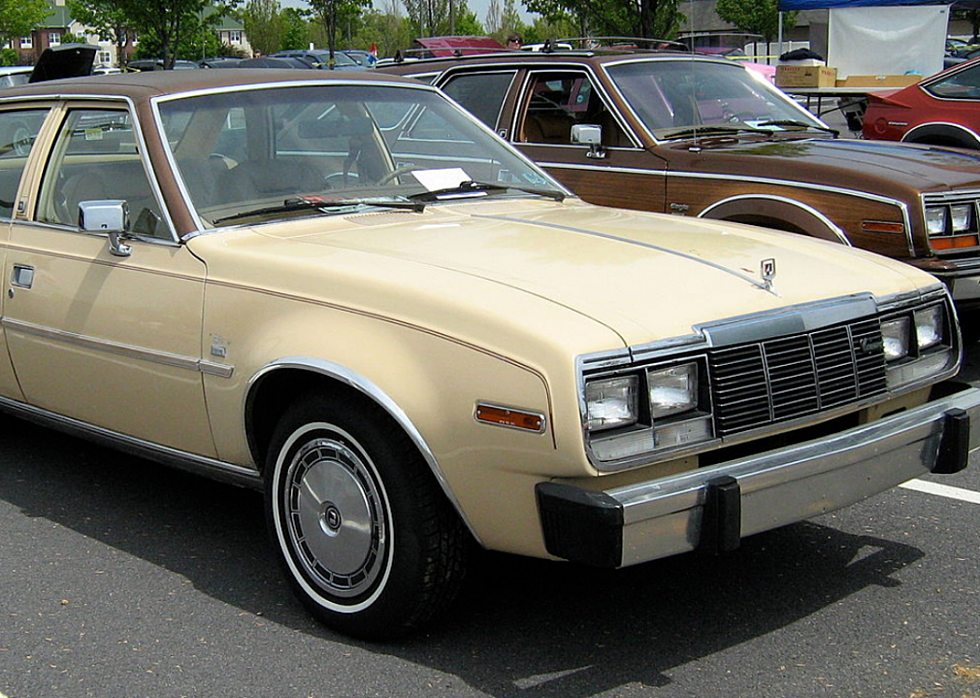
CZmarlin // Wikimedia Commons
American Motor Company
In one of America’s largest corporate mergers at the time, the American Motor Company (AMC) was formed in 1954 when the Nash-Kelvinator Corporation joined the Hudson Motor Car Company. Declining sales led to AMC’s partnership with Renault in 1979. The AMC and Renault brand names were discontinued in the U.S. in 1987, when AMC was purchased by Chrysler.

Mike Mozart // Flickr
Crystal Pepsi
Crystal Pepsi made its debut in a commercial that aired during the 1993 Super Bowl, implying to consumers that they would be tasting the future. Created without the normal dye that gives Pepsi its color, not much else was explained about the soda. Some have projected that the beverage fizzled out two years later because consumers didn’t understand it.
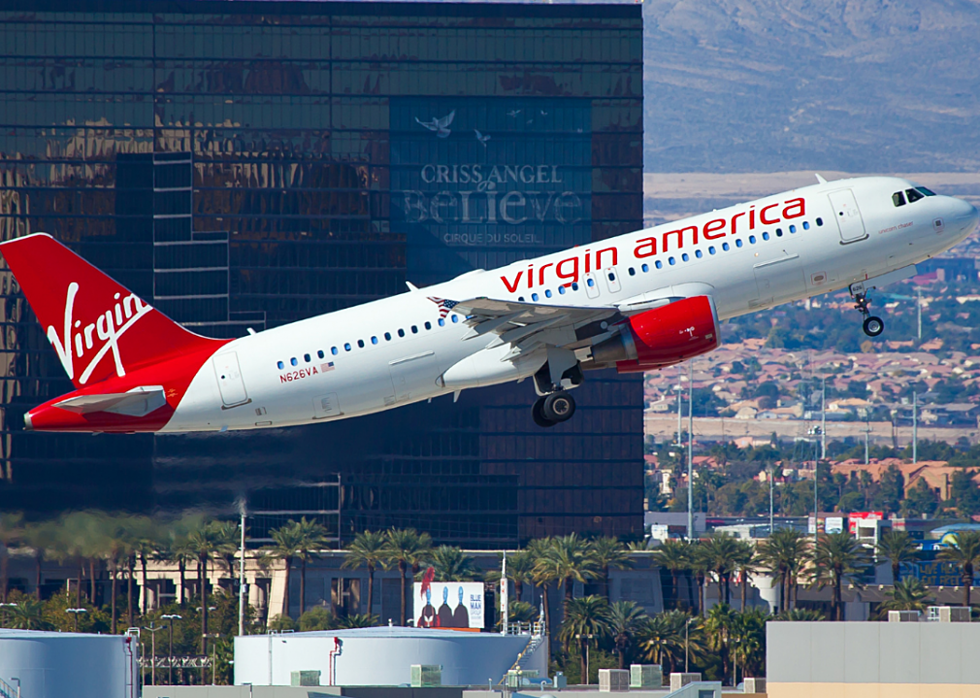
Eliyahu Yosef Parypa // Shutterstock
Virgin America
Billionaire Richard Branson created Virgin America airlines in 2004 as a way to introduce something new and different to the industry. Branson did not approve of the 2017 merger with Alaska Airlines, but he didn’t hold enough stock in the company to have a deciding vote. By mid-2019, the former Virgin America airplanes had all been repainted with Alaska logos.

MaraZe // Shutterstock
Koogle
Launched in 1971, Koogle was a peanut spread from Kraft that came in four different flavors: chocolate, banana, cinnamon, and vanilla. Despite a googly-eyed mascot and fans that have since created a social media page calling for its return, the product was discontinued in the late ’70s.
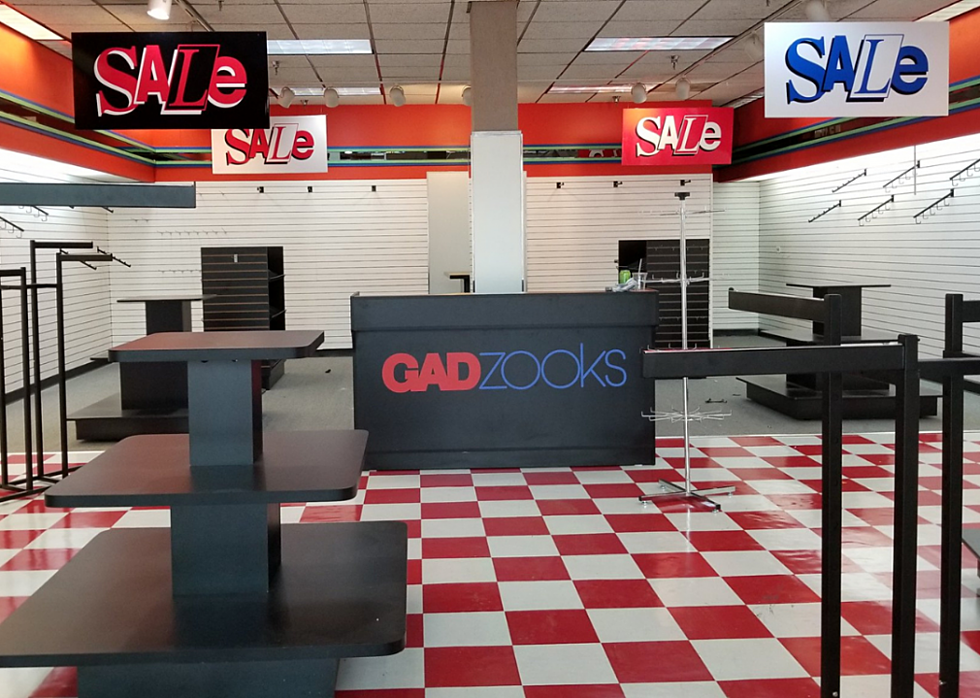
Mike Kalasnik // Flickr
Gadzooks
Established in 1983, Gadzooks was a popular mall-based store where consumers could purchase trendy T-shirts, Doc Martens footwear, and baggy pants. Once fashion trends and consumer tastes changed, Gadzooks filed for bankruptcy. The chain was purchased by Forever 21 in 2005, which closed all the stores.

cclark395 // Flickr
Levitz Furniture
“You’ll love it at Levitz” was the promise promoted by Levitz Furniture, which began in 1910 and gained popularity in the ’60s with its warehouse furniture showroom concept. By the ’90s, the love began to fade, and Levitz filed bankruptcy three times before closing its final store in 2008.

Mikhail Rulkov // Shutterstock
Zany Brainy
In business from 1991 through 2001, the educational toy store Zany Brainy targeted children ages 4 to 13. When the chain acquired a rival toy store, Noodle Kidoodle, the merger resulted in bankruptcy, ending the fun for Zany Brainy.
Soda Truck Crash in the Hudson Valley
Speaking of soda cans making a mess, remember this story from 2022?
Westchester County Police say a truck 45 thousand pounds of soda crashed into the northbound side of the King Street bridge on the Hutchinson River Parkway.
And it wasn’t the first time either. Nearly the exact same scenario took place in February 2021. The Westchester County Police Department shared on their Facebook page that day, that a truck hit the very same bridge, causing a large amount of aluminum cans to spill all over the Hutch.
From the posted pictures on Facebook, you can see hundreds of cans strewn all over the road, causing heavy delays. It almost appears to be cans of Coca Cola at first glance, though a few commenters claim it’s Mountain Dew Kickstart.
RIDICULOUS LAWS IN NEW YORK STATE
Believe it or not, these are some of the dumbest, stupidest, and most ridiculous rules in all of New York State.
Gallery Credit: Dan McGuire

Unsplash:Tingey Injury Law Firm
The Stupidity Begins
The trip down the long road of legal stupidity begins. I’d love to know who had the time to get any of these laws on the books.

Unsplash: Ansgar Scheffold
Least the Donkey Finds it Funny
Seriously…what jackass thought that this was necessary? Must have been a drastically different time in the State of New York.
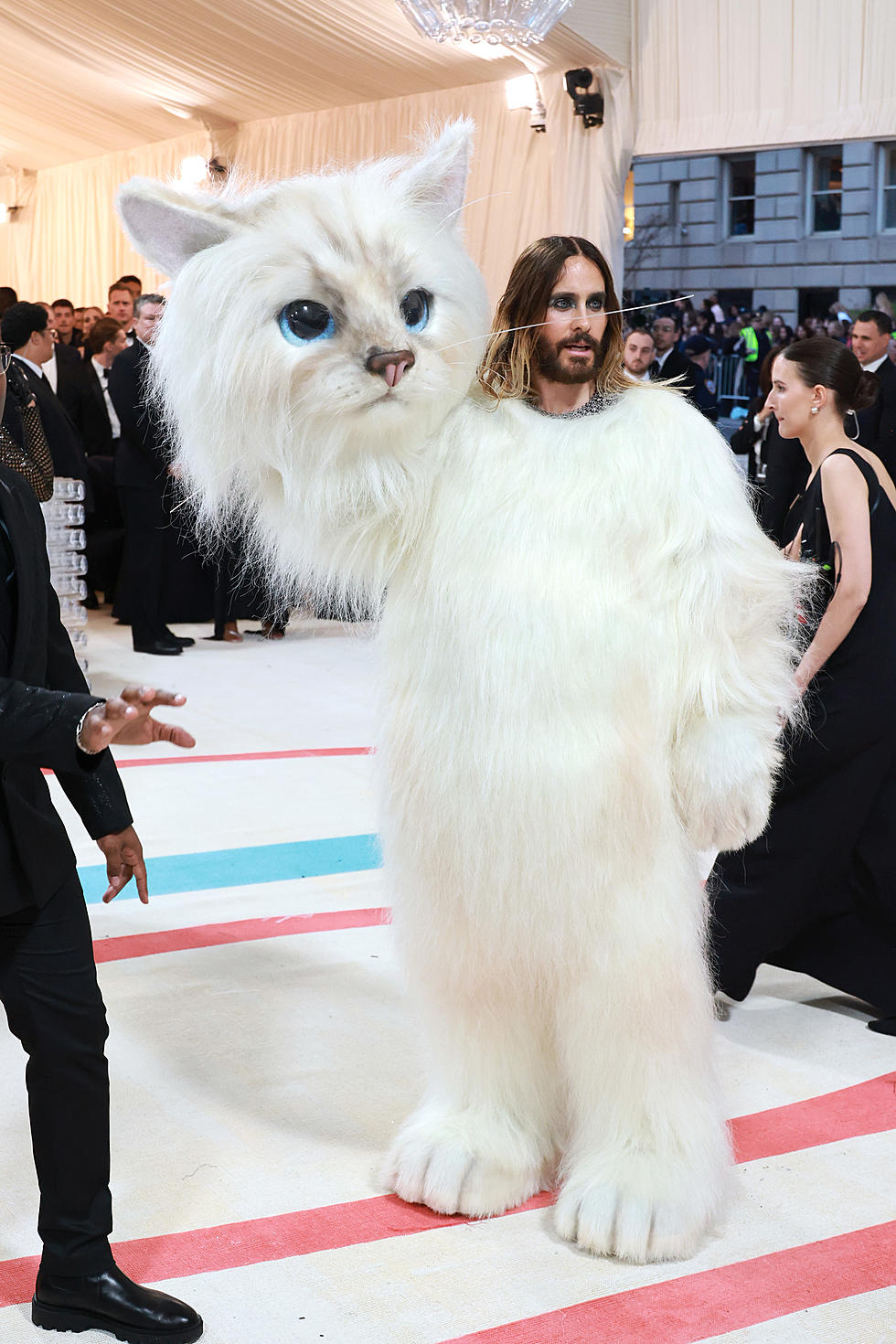
Getty Images for Karl Lagerfeld
This Law Makes Sense if…
So apparently it’s not only against the law but, men are forbidden from wearing a jacket without matching pants. This law could make sense but only if we police fashion like this at the Met Gala. And not for nothing but, isn’t matching your clothes correctly just standard common sense. Oh that’s right common sense is not so common anymore…
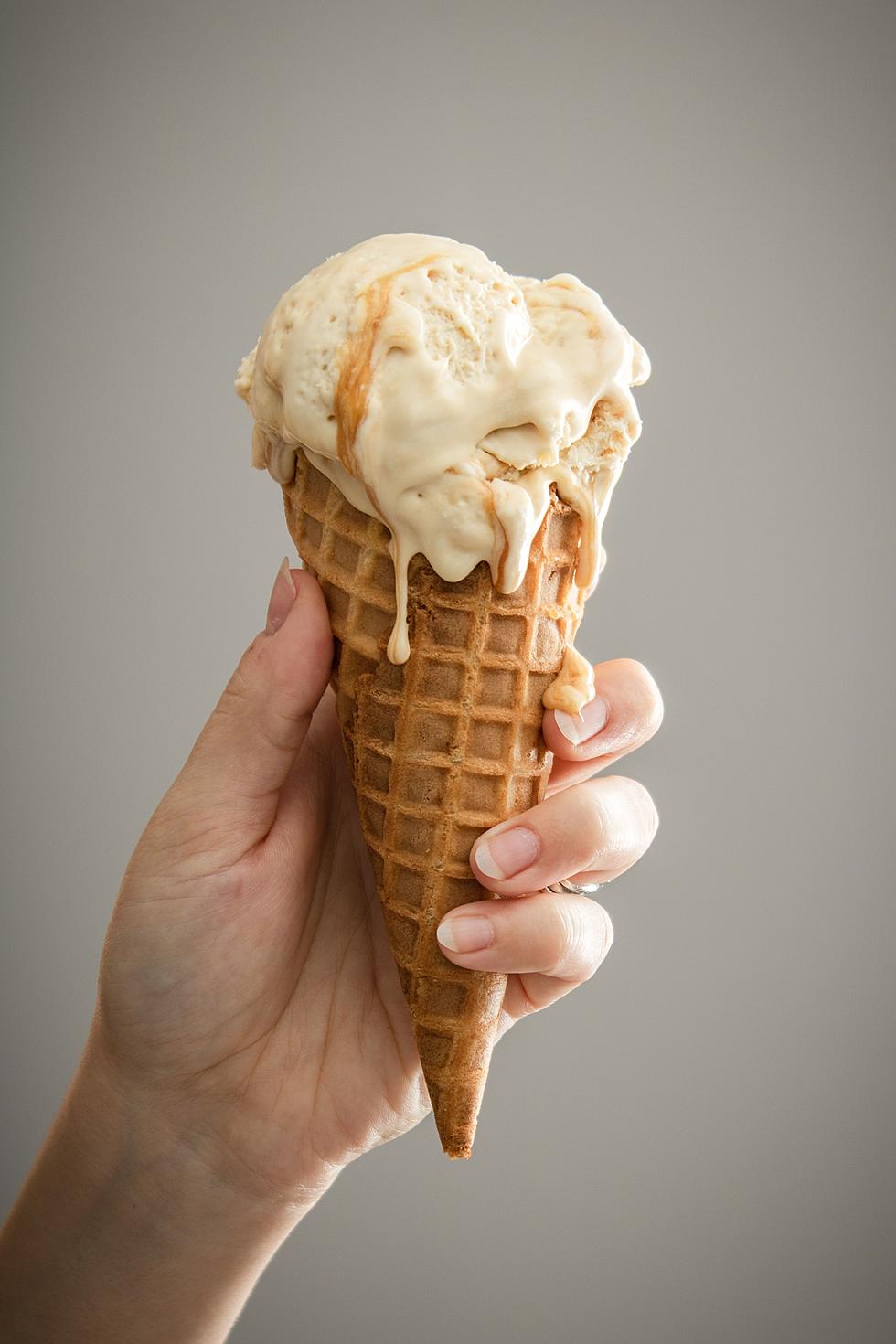
Unsplash: Dana DeVolk
Two for One Special
No, seriously it’s a two-for-one because New York has some weird rules regarding ice cream. Number one, don’t you dare think about enjoying an ice cream cone while sitting at a bus stop because apparently ice cream and bus stops don’t mix well for one reason or another. And then we have number two…

Unsplash: Matthew Moloney
Two for One Special Continued
I guess someone was dumb enough that this had to become a law at some point in time but, it is against the law in New York to place an ice cream cone in your pocket. Yup…

Unsplash: Alexander Mils
Roommate Inventory
Here’s one that regulates who can and who can’t live with you if you happen to have an apartment. it is illegal in New York to share an apartment with three or more individuals if you’re not related. Jeez sorry for the inconvenience, we only have to live with 20 people because it costs an arm and a leg to own a closet in this state.
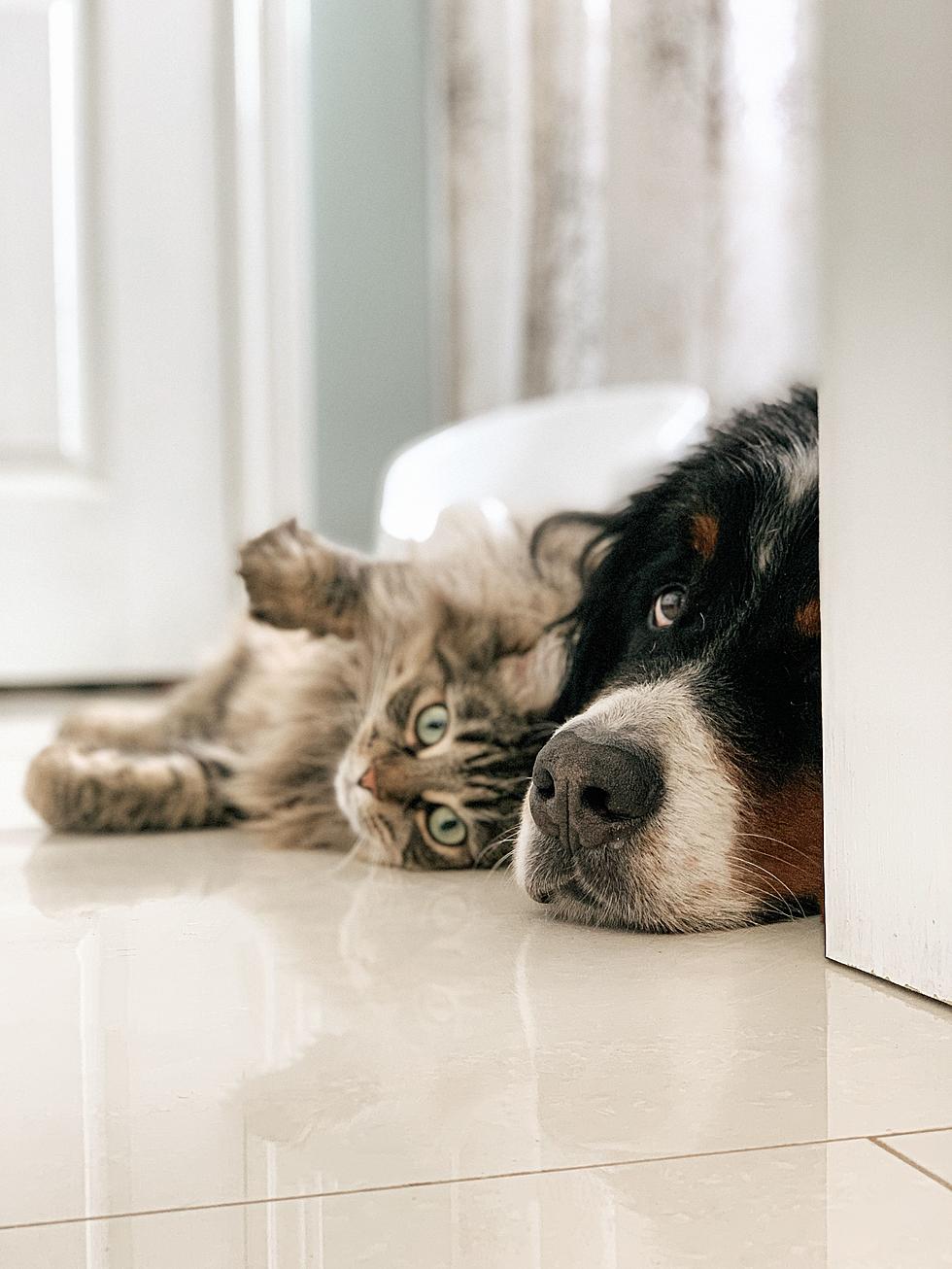
Unsplash: Louis-Philippe Poitras
Valuable Hair???
Here’s another dumb entry, it’s illegal to sell pet hair. Cause I know that’s a giant problem in New York…the selling of pet hair…my patience is running thin now and I’m the one writing this thing.
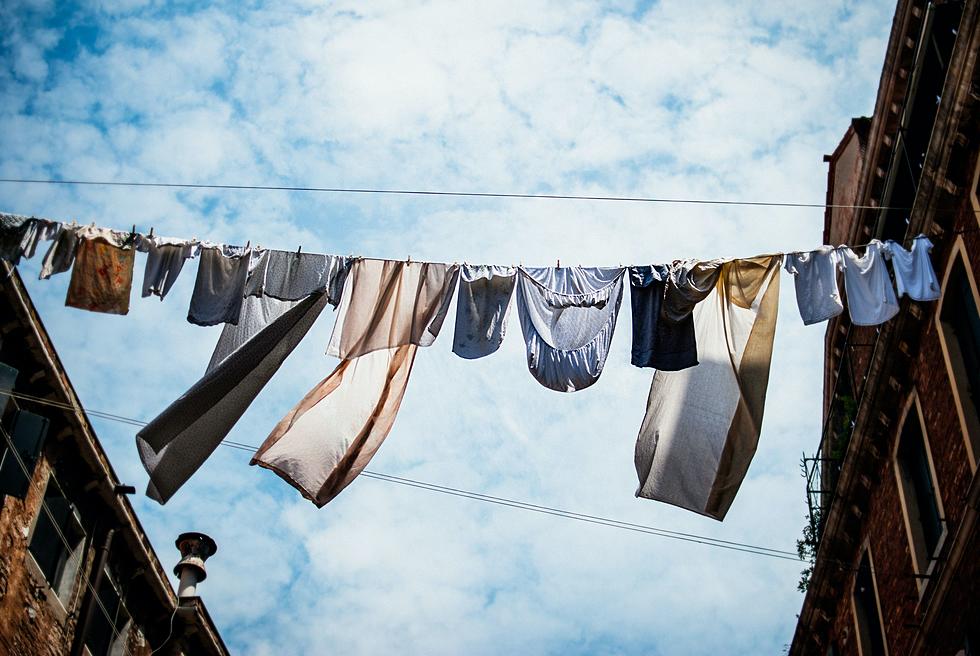
Unsplash: Erik Witsoe
No Clothes for You
So you know how in movies and television over the years and decades, clothes drying on a clothesline was considered normal? Well not anymore, it is against the law to dry your clothes on a clothesline, unless you have a license. Where would you even go for something so stupid?

Unsplash: Vladislav Nikonov
attachment-vladislav-nikonov-13llawadkwu-unsplash
Here’s another one and it doesn’t matter how many times I’ve read it, I’m still flabbergasted by it…”When attending a concert, it is illegal to eat peanuts while walking backward on the sidewalk”. I don’t even know what to say now.

Unsplash: lilartsy
I Mean…Duh…
You can’t cut out another person’s tongue…that’s the law…cause you know that one needed to be put in print…

Unsplash Chris Karidis
No Leaking on the Pidgeon’s
This means at least one person tried it before and I’m going to assume they were drunk but yeah, it is illegal to urinate on a pidgeon.
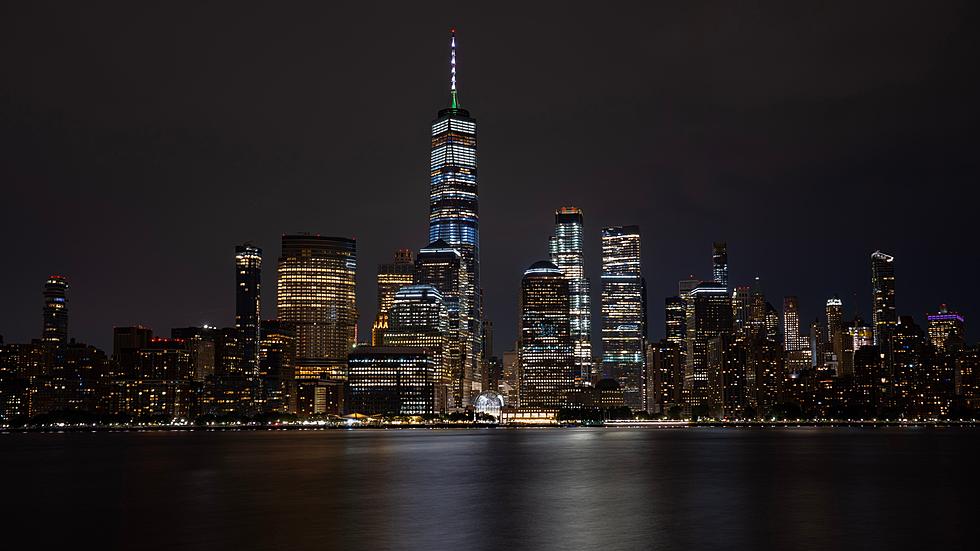
Unsplash: Biswapati Acharya
The Last One
No, seriously it’s the last one…because if you do it, you’re going to die. You will “receive the death penalty if you jump off a building”. Who would’ve thought it, a ridiculous rule that makes sense on this list.
Source: Why is New York State Suing Pepsi?
Filed Under: Harrison, New York State, purchase, Hudson Valley, New York News
Categories: Trending, News in New York
Comments
LEAVE A COMMENT
AROUND THE WEB
The Truth About Metal RoofsMETALROOFNATION.COM
Trump Issues Dire Warning About Your Money, is the U.S. Dollar Doomed?GOLDCO.COM
Put a Toilet Paper Roll Under the Toilet Seat at Night if Alone, Here’s WhySOGOODLY
Before a Heart Attack, Your Body Will Warn You with These SignalsHEART DISEASE
Seniors with Arthritis Say This ‘Offers Near Instant Relief’HEALTHIER LIVING
Urologist: 80% of Men with E.D Don’t Know About This Easy Fix (Try Tonight)ED ELIXIR
What Causes Psoriasis – It’s Not What Most People ThinkPLAQUE PSORIASIS
The Lump of Worms Will Come Out of You in The Morning. Try itANTI PARASITE
Powered by RevContent
null
MORE FROM NEW JERSEY 101.5 FM








To every jerk who won’t give a courtesy thanks on NJ roads (Opinion)
To every jerk who won’t give a courtesy thanks on NJ roads (Opinion)To every jerk who won’t give a courtesy thanks on NJ roads (Opinion)Tuckerton, NJ utilities worker stole customers’ payments for 5 years, cops say
Tuckerton, NJ utilities worker stole customers’ payments for 5 years, cops sayTuckerton, NJ utilities worker stole customers’ payments for 5 years, cops sayLatest podcast: Common Ground with Bill Spadea
Latest podcast: Common Ground with Bill SpadeaLatest podcast: Common Ground with Bill SpadeaThese are among NJ’s highest paying jobs right now
These are among NJ’s highest paying jobs right nowThese are among NJ’s highest paying jobs right nowThis is (supposedly) NJ’s favorite Thanksgiving side dish
This is (supposedly) NJ’s favorite Thanksgiving side dishThis is (supposedly) NJ’s favorite Thanksgiving side dishTrenton, NJ ranks second in the country for career development
Trenton, NJ ranks second in the country for career developmentTrenton, NJ ranks second in the country for career developmentOld racehorses will be slaughtered but you can save their lives
Old racehorses will be slaughtered but you can save their livesOld racehorses will be slaughtered but you can save their livesForget NYC: The most memorable tree lighting is right here in NJ
Forget NYC: The most memorable tree lighting is right here in NJForget NYC: The most memorable tree lighting is right here in NJ
- Equal Employment Opportunity Policy and EEO Report
- Marketing and Advertising Solutions
- Public File
- Need Assistance
- FCC Applications
- Report an Inaccuracy
- Terms
- Contest Rules
- Privacy Policy
- Accessibility Statement
- Exercise My Data Rights
- Contact
- New Jersey Business Listings
2023 New Jersey 101.5, Townsquare Media, Inc. All rights reserved.
Read More: Why is New York State Suing Pepsi? | https://nj1015.com/ixp/705/p/new-york-sues-pepsi/?utm_source=tsmclip&utm_medium=referral
Leave a comment